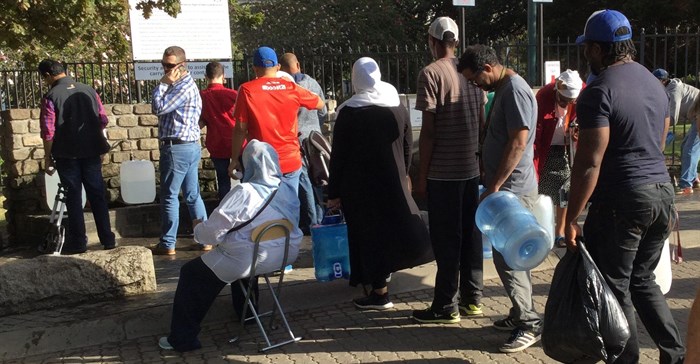
Top stories






More news

Marketing & Media
Ads are coming to AI. Does that really have to be such a bad thing?
















That set me thinking of the need for an environmental behaviour change communication gathering in South Africa, designed along similar lines, to hear what works, and to apply current learnings from other fields in our environmental context.
With the mixed messaging over Cape Town’s water crisis still fresh in our minds, such a confluence of social science and communication specialists and practitioners may be sorely needed.
As it happened, the City of Cape Town’s first choice of communication specialists on the water issue was a PR company who specialised in crisis communications – hence ‘Day Zero’ - and visions of the dire consequences that might follow if that scenario came to pass.
Possibly they were correct in framing it initially as a crisis. It certainly did concentrate the mind, but what then followed was finger-pointing and political divisiveness which eventuated in the mayor being taken off from leading the campaign.
What the campaign possibly lacked was an appeal early on for Capetonians to pull together in socially cohesive ‘Yes we can’ messaging which could have transcended divisions and enabled an eventual ‘Yes we did it together!’ - better and more effective all round.
Interestingly, an example of successful environmental behaviour change under the City of Cape Town’s direction has been the roll-out of recycling services to residents. Over 150,000 households now receive free weekly kerbside collection of their (mostly packaging) recyclables. The percentage of households participating is estimated at well over 50% - i.e. every second household receiving the service is recycling, due in part to effective communications, and a convenient collection system.
South Africa certainly has its share of environmental issues and a variety of organisations who do great work in raising awareness. Understanding how awareness is translated into measurable behaviour change would be most useful as well.
WWF-SA’s Journey of Water campaign brings in celebrities to traverse river catchments under stress. They are followed by social and a variety of other media posts. It would be good to know how social science-based (rather than just media) evaluations of such campaigns are carried out.
‘Earth Hour’, an international campaign conceived in Australia in 2009 and administered by WWF-SA raises awareness for energy conservation. Participation is excellent – some 100,000 people participate annually, switching off lights on the designated Saturday nights in March. How was the carry through of the short-term conservation mindset into longer-term behaviour change?
Social behaviour change organisations in South Africa, such as Soul City and the Centre for Communication Impact (CCI), have had major successes, especially in the fight against HIV/AIDS. Their experience, methodologies, tools and stories could be very useful for environmental communicators and change agents.
Environmental change campaigns are often briefed into internal communications units or PR companies, advertising and social media agencies who may have competent technical and content generation skills but lack deeper understanding of social science change methodologies based in psychology and sociology. The methods that underpin successful campaigns go way beyond ‘awareness raising’ and ‘media reach’ into the hearts, minds and behaviours of those they want to change.
It may be high time that environmental and social communication practitioners get together with social scientists to share what works best for lasting pro-environmental behaviour change in South Africa.